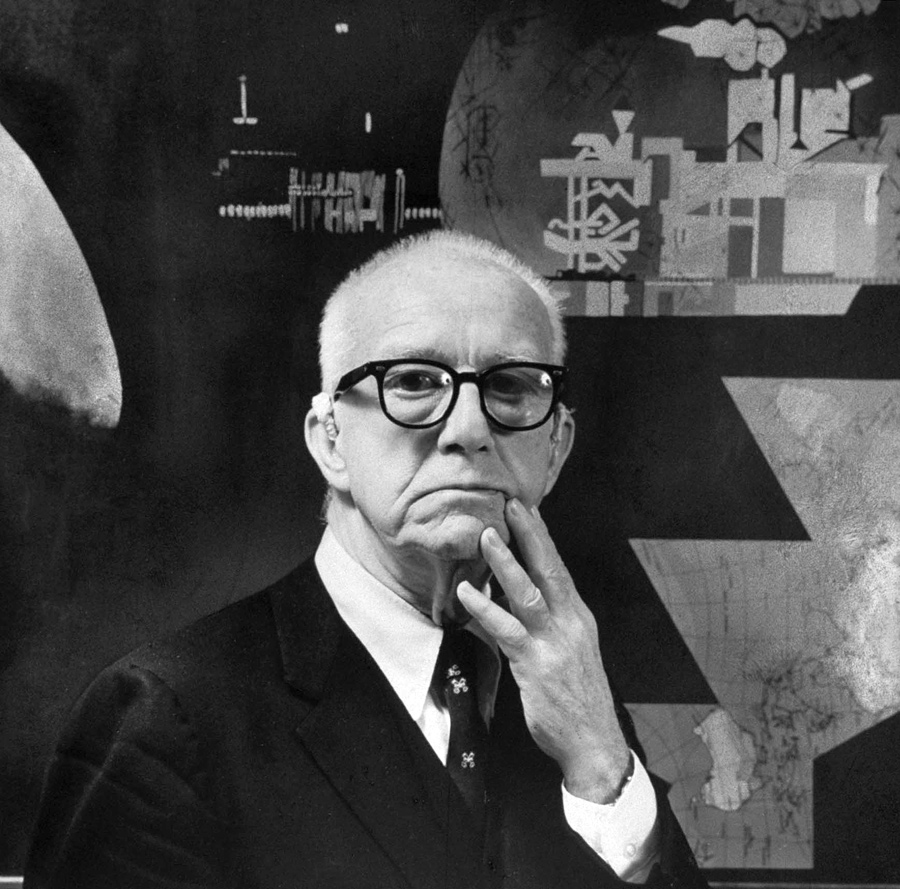Buckminster Fuller, And It Came to Pass, Not to Stay

Argued by some to be his greatest book published, Buckminster Fuller’s And It Came to Pass, Not to Stay is a collection of seven essays that the theorist refers to as “ventilated prose.” They address his predictions about the future and his concerns about physical, social, and political global crises. This interview with Charles Ruas followed its 1976 publication from Macmillian.
Fuller begins by reading an excerpt from the book, where he draws attention to planetary revolution and evolutionary perceptions of land and wealth. He then speaks out against customs, stating that they corrupt the naivety and sensitivity of ones vision. Instead of embracing these customs, Fuller celebrates the ability to awaken ones inner child. On that note, he and Ruas speak about his Chicago upbringing, Harvard education, his struggles as a penniless inventor, and tells the incredible story of his family history including the remarkable proto-feminist Margaret Fuller and her adventures with Goethe.
They talk about Fuller’s apolitical philosophy, rejection of Malthusian theory, and his desire to find solutions to a broken social system, rather than trying to reform them. Coming out of the Great Depression and the post-World War era, he explains how he sought to improve upon artifacts that had economical leverage, such as automobiles and housing.
R. Buckminster Fuller (1895-1983) was an American visionary, primarily known for his architectural design contributions and environmental theories. A New England native and Harvard graduate, he spent his early years as an inventor in Chicago. In the midst of the Great Depression, he introduced his first prototype for the Dymaxion car. The three-wheeled automobile could hold 12 passengers and was faster and more fuel-efficient than the standard car. He went on to design the Dymaxion House and Geodesic Dome. A major influence on radical youth and young architects in the 1960s and 70s, he went on to pioneer the concept of “space-ship Earth” and was a forerunner in environmental activism. Fuller was awarded 28 U.S. patents and was the recipient of the Presidential Medal of Freedom from Ronald Reagan, in 1983. He died four months later of a heart attack, at the deathbed of his wife.
RELATED PROGRAMS

Historic Audio from the Archives of Charles Ruas
RADIO SERIES
An unparalleled collection of recovered and restored programs from the seventies produced by Charles Ruas, and featuring Allen Ginsberg, John Giorno, Anaïs Nin, William Boroughs, Buckminster Fuller, Sylvia Plath, Pablo Neruda, and Jorge Luis Borges, among numerous others.
more 





